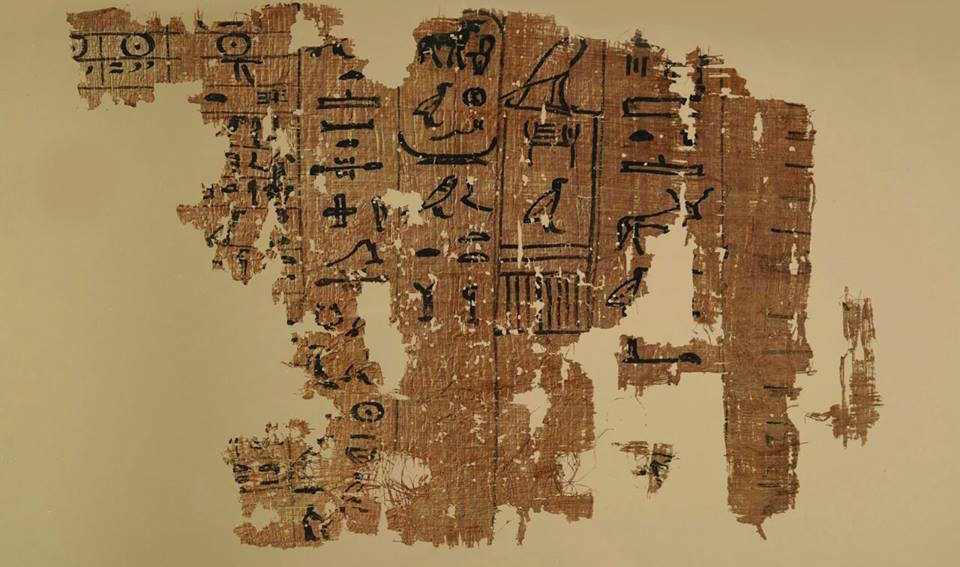Ancient Logbook Documenting Great Pyramid's Construction Unveiled

A logbook that contains records detailing the construction of the Great Pyramid of Giza has been put on public display at the Egyptian Museum in Cairo.
The Great Pyramid of Giza was built in honor of the pharaoh Khufu (reign ca. 2551 B.C.-2528 B.C.) and is the largest of the three pyramids constructed on the Giza plateau in Egypt. Considered a "wonder of the world" by ancient writers, the Great Pyramid was 481 feet (146 meters) tall when it was first constructed. Today it stands 455 feet (138 meters) high.
The logbook was written in hieroglyphic letters on pieces of papyri. Its author was an inspector named Merer, who was "in charge of a team of about 200 men," archaeologists Pierre Tallet and Gregory Marouard wrote in an article published in 2014 in the journal Near Eastern Archaeology. [In Photos: Inside Egypt's Great Pyramids]
Tallet and Marouard are leaders of an archaeological team from France and Egypt that discovered the logbook at the Red Sea harbor of Wadi al-Jarfin 2013. It dates back about 4,500 years, making it the oldest papyrus document ever discovered in Egypt.
"Over a period of several months, [the logbook] reports — in [the] form of a timetable with two columns per day — many operations related to the construction of the Great Pyramid of Khufu at Giza and the work at the limestone quarries on the opposite bank of the Nile," Tallet and Marouard wrote.
Merer recorded the logs in the 27th year of Khufu's reign. His records say that the Great Pyramid was near completion, with much of the remaining work focusing on the construction of the limestone casing that covered the outside of the pyramid, Tallet and Marouard wrote.
The limestone used in this casing, according to the logbook, was quarried at Tura near modern-day Cairo, and was brought to the pyramid site by boat along the Nile River and a system of canals. One boat trip between Tura and the pyramid site took four days to complete, the logbook notes.
Sign up for the Live Science daily newsletter now
Get the world’s most fascinating discoveries delivered straight to your inbox.
The logbook also says that in Khufu's 27th year, the construction of the Great Pyramid was being overseen by the vizier Ankhaf (also spelled Ankhhaf), the half- brother of Khufu. (A vizier was a high official in ancient Egypt who served the king.)
The papyri also reveal that one of the titles Ankhaf held was "chief for all the works of the king," Tallet and Marouard wrote in the journal article.
Though the logbook said Ankhaf was in charge during the pharaoh's 27th year, many scholars believe it's possible that another person, possibly the vizier Hemiunu, was in charge of pyramid building during the earlier part of Khufu's reign.
In the press release museum representatives did not specify how long the logbook will be on public display.
Original article on Live Science.

Owen Jarus is a regular contributor to Live Science who writes about archaeology and humans' past. He has also written for The Independent (UK), The Canadian Press (CP) and The Associated Press (AP), among others. Owen has a bachelor of arts degree from the University of Toronto and a journalism degree from Ryerson University.










